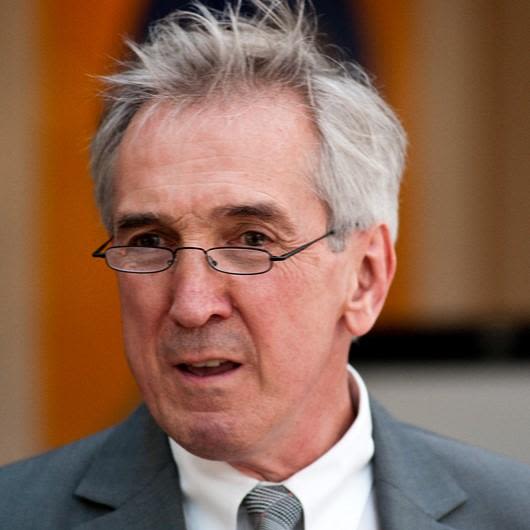
MAIN RESEARCH INTERESTS
1. The development and evaluation of psychological treatments. This work has mainly focused on eating disorders although more recently it has extended to include the psychological treatment of anxiety and depression.
2. The global dissemination of effective psychological treatments and the use of digital technology to facilitate this goal.
CAREER
I trained in medicine at Oxford and in psychiatry at Edinburgh. I returned to Oxford in 1979 and engaged in full-time clinical research until 2018. For the first three years I was supported by the Medical Research Council and then, for the rest of my research career, by the Wellcome Trust. I founded CREDO (Centre for Research on Eating Disorders at Oxford) in 1986.
I am currently working in two related fields. The first is the global dissemination of effective psychological treatments. I am particularly closely involved with Harvard's EMPOWER initiative. The second is the use of digital technology to help disseminate psychological treatments.
I have been a governor of the Wellcome Trust and I was a founder trustee of the mental health research charity MQ. I have twice been a Fellow at Stanford’s Center for Advanced Study in the Behavioral Sciences. In 2021 I was awarded an OBE for "Services to psychological treatments and the treatment of eating disorders."
Christopher G Fairburn
Emeritus Professor of Psychiatry
Psychological treatment development and evaluation; Global dissemination of effective psychological treatments; Eating disorders.
THE GLOBAL DISSEMINATION OF PSYCHOLOGICAL TREATMENTS
For the past ten years I have been working closely with Professor Vikram Patel (Harvard) on the global dissemination of psychological treatments (Fairburn and Patel, 2014). This has included developing and testing psychological treatments (particularly for adults with depression) for use in low-resource settings (Patel et al, 2017), and evaluating means of disseminating them. We have also developed a brief intervention for young people who are experiencing significant levels of depression or anxiety. This is currently being digitalised.
A major commitment is the EMPOWER initiative (led by Vikram Patel) whose goal is to make effective psychological treatments available to all those who might benefit from them, wherever they live and whatever their circumstances. I am Chair of both its Advisory Board and its Science Council.
THE USE OF DIGITAL TECHNOLOGY TO DELIVER AND DISSEMINATE PSYCHOLOGICAL TREATMENTS
Digital technology can be used to deliver and disseminate psychological treatments. At CREDO we are especially interested in the conversion of therapist-delivered psychological treatments into autonomous digital interventions for delivery direct to the public (Fairburn and Patel, 2017). We have developed a fully digital version of the leading psychological treatment for adults with eating disorders (CBT-E) and it is undergoing preliminary trials led by Dr Rebecca Murphy.
We have also developed a digital method for training therapists. This has been found to be popular and effective (Fairburn et al, 2017; Cooper et al, 2017). It provides a scalable means of simultaneously training large numbers of geographically dispersed therapists and at low cost.
THE PSYCHOLOGICAL TREATMENT OF EATING DISORDERS
Our work at the Centre for Research on Eating Disorders at Oxford (CREDO) has led to the development of the three most effective treatments for adults with eating disorders.
The first is the cognitive behavioural treatment for bulimia nervosa (Fairburn, 1981), a disorder that was originally described as "intractable". This treatment has been extensively studied and was the first psychological treatment ever to be endorsed by NICE (NICE, 2004; 2017).
The second is an "enhanced" form of cognitive behaviour therapy (CBT-E) designed to be more potent than the bulimia nervosa treatment and transdiagnostic in its clinical range. (Fairburn et al, 2003). CBT-E has been shown to be effective in the treatment of all forms of eating disorder seen in adults. It is strongly endorsed by the latest NICE guidelines on eating disorders (NICE, 2017).
The third is a form of treatment termed "guided self-help" (Carter and Fairburn, 1995). We designed guided self-help to support the use of the self-help programme in my book Overcoming Binge Eating (Fairburn, 1995; 2013)*. It has proved to be highly effective in the treatment of recurrent binge eating. Guided self-help is now used to support the treatment of many mental disorders.
*Overcoming Binge Eating (Fairburn, 2013) has been translated into Dutch, German, Italian, Japanese, Mandarin, Norwegian, Polish, Spanish, Swedish, and Turkish.
Recent publications
-
Pilot randomised controlled trial of a remotely delivered online intervention for adolescent mental health problems in India: lessons learned about low acceptability and feasibility during the COVID-19 pandemic.
Journal article
Gonsalves PP. et al, (2022), BJPsych Open, 9
-
"If there is a tension about something, I can solve it": A qualitative investigation of change processes in a trial of brief problem-solving interventions for common adolescent mental health problems in India.
Journal article
Malik K. et al, (2022), Psychol Psychother
-
Effectiveness and costs associated with a lay counselor-delivered, brief problem-solving mental health intervention for adolescents in urban, low-income schools in India: 12-month outcomes of a randomized controlled trial.
Journal article
Malik K. et al, (2021), PLoS Med, 18

